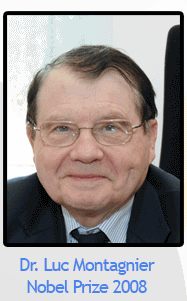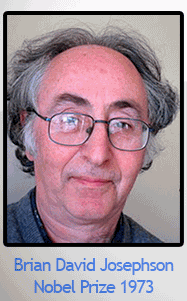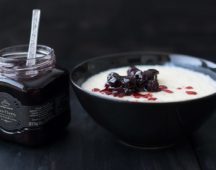- Dr.Nambison
- February 21, 2018
- 11337
Nobel laureates: Homeopathy medicine of future.
In a remarkable interview published in Science magazine of December 24, 2010, (1) Professor Luc Montagnier, has expressed support for the often maligned and misunderstood medical specialty of homeopathic medicine. Especially, principle of Dynamisation or serial dilution to achieve potency of medicine.
Although homeopathy has persisted for 200+ years throughout the world and has been the leading alternative treatment method used by physicians in Europe and India, (2) most conventional physicians and scientists have expressed skepticism about its efficacy due to the extremely small doses of medicines used.
Dr. Luc Montagnier, the French virologist who won the Nobel Prize in 2008 for discovering the AIDS virus, has surprised the scientific community with his strong support for homeopathic medicine. Montagnier’s research (and other of many of his colleagues) has verified that electromagnetic signals of the original medicine remains in the water and has dramatic biological effects.
Montagnier’s new research is investigating the electromagnetic waves that he says emanate from the highly diluted DNA of various pathogens. Montagnier asserts, “What we have found is that DNA produces structural changes in water, which persist at very high dilutions, and which lead to resonant electromagnetic signals that we can measure. Not all DNA produces signals that we can detect with our device. The high-intensity signals come from bacterial and viral DNA.”
Montagnier’s new research evokes memories one of the most sensational stories in French science, often referred to as the ‘Benveniste affair’ A highly respected immunologist Dr. Jacques Benveniste., who died in 2004, conducted a study which was replicated in three other university laboratories and that was published in Nature(19). Benveniste and other researchers used extremely diluted doses of substances that created an effect on a type of white blood cell called basophils.
Although Benveniste’s work was supposedly debunked, (20) Montagnier considers Benveniste a “modern Galileo” who was far ahead of his day and time and who was attacked for investigating a medical and scientific subject that orthodoxy had mistakenly overlooked and even demonized. A related topic is the phenomenon, claimed by Jacques Benveniste’s colleague Yolène Thomas and by others to be well established experimentally, known as “memory of water.”

If valid (high dilution nano structure memory), this would be of greater significance than homeopathy itself, and it attests to the limited vision of the modern scientific community that, far from hastening to test such claims, the only response has been to dismiss them out of hand. (21) comments Brian David Josephson (Nobel Prize in 1973), who is an emeritus professor of Cambridge University in England, he was also asked by New Scientist editors how he became an advocate of unconventional ideas. He responded: I went to a conference where the French immunologist Jacques Benveniste was talking for the first time about his discovery that water has a ‘memory’ of compounds that were once dissolved in it — which might explain how homeopathy works. His findings provoked irrationally strong reactions from scientists, and I was struck by how badly he was treated. (22) Josephson went on to describe how many scientists today suffer from “pathological disbelief;” that is, they maintain an unscientific attitude that is embodied by the statement “even if it were true I wouldn’t believe it.“
Montagnier: “I can’t say that homeopathy is right in everything. What I can say now is that the high dilutions are right. High dilutions of something are not nothing. They are water structures which mimic the original molecules. I am told that some people have reproduced Benveniste’s results, but they are afraid to publish it because of the intellectual terror from people who don’t understand it.”
REFERENCES: (1) Enserink M, Newsmaker Interview: Luc Montagnier, French Nobelist Escapes “Intellectual Terror” to Pursue Radical Ideas in China. Science 24 December 2010: Vol. 330 no. 6012 p. 1732. DOI: 10.1126/science.330.6012.1732 (2) Ullman D. Homeopathic Medicine: Europe’s #1 Alternative for Doctors. http://www.huffingtonpost.com/dana-ullman/homeopathic-medicine-euro_b_402490.html (3) Linde L, Clausius N, Ramirez G, et al., “Are the Clinical Effects of Homoeopathy Placebo Effects? A Meta-analysis of Placebo-Controlled Trials,” Lancet, September 20, 1997, 350:834-843. (4) Lüdtke R, Rutten ALB. The conclusions on the effectiveness of homeopathy highly depend on the set of analyzed trials. Journal of Clinical Epidemiology. October 2008. doi: 10.1016/j.jclinepi.2008.06/015. (5) Taylor, MA, Reilly, D, Llewellyn-Jones, RH, et al., Randomised controlled trial of homoeopathy versus placebo in perennial allergic rhinitis with overview of four trial Series, BMJ, August 19, 2000, 321:471-476. (6) Ullman, D, Frass, M. A Review of Homeopathic Research in the Treatment of Respiratory Allergies. Alternative Medicine Review. 2010:15,1:48-58. http://www.thorne.com/altmedrev/.fulltext/15/1/48.pdf (7) Vickers AJ. Homoeopathic Oscillococcinum for preventing and treating influenza and influenza-like syndromes. Cochrane Reviews. 2009. (8) Bell IR, Lewis II DA, Brooks AJ, et al. Improved clinical status in fibromyalgia patients treated with individualized homeopathic remedies versus placebo, Rheumatology. 2004:1111-5. (9) Fisher P, Greenwood A, Huskisson EC, et al., “Effect of Homoeopathic Treatment on Fibrositis (Primary Fibromyalgia),” BMJ, 299(August 5, 1989):365-6. (10) Jonas, WB, Linde, Klaus, and Ramirez, Gilbert, “Homeopathy and Rheumatic Disease,” Rheumatic Disease Clinics of North America, February 2000,1:117-123. (11) Jacobs J, Jonas WB, Jimenez-Perez M, Crothers D, Homeopathy for Childhood Diarrhea: Combined Results and Metaanalysis from Three Randomized, Controlled Clinical Trials, Pediatr Infect Dis J, 2003;22:229-34. (12) Barnes, J, Resch, KL, Ernst, E, “Homeopathy for Post-Operative Ileus: A Meta-Analysis,” Journal of Clinical Gastroenterology, 1997, 25: 628-633. (13) M, Thurneysen A. Homeopathic treatment of children with attention deficit hyperactivity disorder: a randomised, double blind, placebo controlled crossover trial. Eur J Pediatr. 2005 Dec;164(12):758-67. Epub 2005 Jul 27. (14) Kassab S, Cummings M, Berkovitz S, van Haselen R, Fisher P. Homeopathic medicines for adverse effects of cancer treatments. Cochrane Database of Systematic Reviews 2009, Issue 2. (15) Witt CM, Bluth M, Albrecht H, Weisshuhn TE, Baumgartner S, Willich SN. The in vitro evidence for an effect of high homeopathic potencies–a systematic review of the literature. Complement Ther Med. 2007 Jun;15(2):128-38. Epub 2007 Mar 28. (16) Endler PC, Thieves K, Reich C, Matthiessen P, Bonamin L, Scherr C, Baumgartner S. Repetitions of fundamental research models for homeopathically prepared dilutions beyond 10-23: a bibliometric study. Homeopathy, 2010; 99: 25-36. (17) Luc Montagnier, Jamal Aissa, Stéphane Ferris, Jean-Luc Montagnier, Claude Lavallee, Electromagnetic Signals Are Produced by Aqueous Nanostructures Derived from Bacterial DNA Sequences. Interdiscip Sci Comput Life Sci (2009) 1: 81-90. http://www.springerlink.com/content/0557v31188m3766x/fulltext.pdf (18) Nobel laureate gives homeopathy a boost. The Australian. July 5, 2010. http://www.theaustralian.com.au/news/health-science/nobel-laureate-gives-homeopathy-a-boost/story-e6frg8y6-1225887772305 (19) Davenas E, Beauvais F, Amara J, et al. (June 1988). “Human basophil degranulation triggered by very dilute antiserum against IgE”. Nature 333 (6176): 816-8. (20) Maddox J (June 1988). “Can a Greek tragedy be avoided?”. Nature 333 (6176): 795-7. (21) Josephson, B. D., Letter, New Scientist, November 1, 1997. (22) George A. Lone Voices special: Take nobody’s word for it. New Scientist. December 9, 2006. (23) Personal communication. Brian Josephson to Dana Ullman. January 5, 2011. (24) Chikramane PS, Suresh AK, Bellare JR, and Govind S. Extreme homeopathic dilutions retain starting materials: A nanoparticulate perspective. Homeopathy. Volume 99, Issue 4, October 2010, 231-242. (25) Human and Experimental Toxicology, July 2010: http://het.sagepub.com/content/vol29/issue7/ To access free copies of these articles, see: http://www.siomi.it/siomifile/siomi_pdf/BELLE_newsletter.pdf (26) http://www.huffingtonpost.com/dana-ullman/luc-montagnier-homeopathy-taken-seriously_b_814619.html?ir=India (27) http://www.homeopathyeurope.org/media/news/nobel-laureate-montagnier-takes-homeopathy-seriously
Related Posts
- comments














